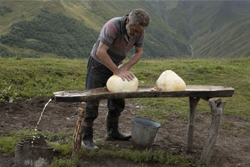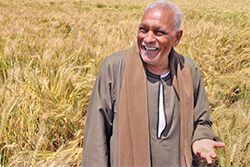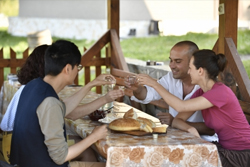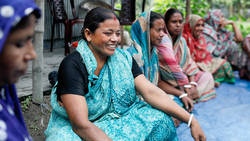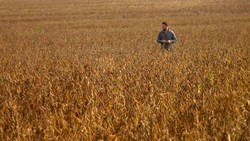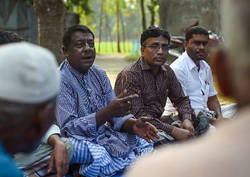Featured stories
A project in Panama aims to increase the income of Indigenous coffee producers by enhancing the production, processing, quality and sales of coffee from sustainable agroforestry.
More than 150 Indigenous coffee farmers from different communities completed a season-long, FAO Farmers Field Schools’ training in sustainable agroecological practices that enhance resilience to climate change and improve the quantity and quality of production while being aligned with and building upon Indigenous Peoples’ traditional knowledge and cultural practices.
Over the last several years, FAO and the European Bank for Reconstruction and Development (EBRD) have been working with governments and producers worldwide to support geographical indications (GI) for traditionally made products.
GI labels bring more value to products, translating into higher incomes for rural households, promoting pride in local food cultures and attracting youth to a promising agricultural business. It is just one in a series of FAO initiatives that work with partners to support rural livelihoods and communities.
07.06.2020
Growing Egypt's wheat supply
Egypt is improving its wheat supply chain to meet growing demand for bread. FAO and the EBRD are supporting the Egyptian Government and the industry in their efforts.
The country is upgrading operations across its grain sector – from regular plant health inspections and quality controls to proper storage and transportation – and working to resolve bottlenecks throughout the entire supply chain.
02.05.2020
Keeping Montenegro’s flavours alive
Some 100 smallholder farmers from mountain villages in northern Montenegro are now reaping the benefits of agro-tourism and/or getting recognition for preserving centuries-old culinary traditions, and a way of life that, elsewhere, has been long abandoned or is slowing dying out.
30-year-old Danka hosts tourists, mostly from other parts of Europe, in “katuns” – centuries-old wooden huts used in the past by nomadic herders. She offers them guided hiking and horse riding, lessons in cheese making, and enthralls them with fresh, organic food.
06.03.2020
Fishing for innovations in Peru
Peru's Fisheries and Aquaculture Innovation Program (PNIPA) is helping the country manage and safeguard its fishery resources more efficiently and tap into new markets.
Since the programme began, innovations have popped up throughout the country, from the coastal regions to the highlands and jungle areas. Some involve the research and development of new technologies; others focus on boosting productivity and efficiency along supply chains.
25.10.2019
Investing in Mali’s future
Four out of five Malians living in rural communities do not have access to financial capital to develop economic activities. This can result in food shortages, reliance on a subsistence economy and no financial safety net.
FAO is providing technical assistance to an IFAD-funded rural microfinance programme helping the Malian Government improve the access of around 500 000 low-income rural Malians to financial services.
Under way since 2011, the programme’s approach for financial inclusion supports income-generating activities and community savings groups. Local NGOs have trained community groups on financial literacy, business plan preparation, networking with financial institutions, loan application and repayment and management support.
In rural Bangladesh, many women find it hard to access finance to invest in businesses. For farmer Renu Bala, her dream was to purchase a number of high-yielding dairy cattle. The local breeds only produce a couple of litres of milk per day.
However, none of the women have sufficient assets to use as collateral for a bank loan and the complex application processes is an additional barrier.
20.12.2017
Reviving Ukraine's Breadbasket
While wheat is the most consumed crop in Ukraine, domestic demand is slowly decreasing. Ukrainians consumed on average about 101 kg of wheat in the form of bread, flour, pasta, groats and other processed grain products in 2016, which is 18 percent less than ten years ago.
With increased grain production, the future therefore lies in exports. Opening up new export markets will help support Ukraine’s economy, while also helping to meet the growing global demand for grains and reducing current levels of hunger and malnutrition.
With a declining population in Ukraine and changing consumer preferences, the domestic demand for flour has been steadily decreasing for over a decade. Millers therefore have to diversify and find new export opportunities.
“Unfortunately, very little is known about Ukraine today on the world markets” explained Viktor Doroshenko, CEO of Skvyrskyi Grain Processing Factory. “Both in Europe and in Asia, buyers are often cautious about Ukrainian products and processors”.
The Integrated Agricultural Productivity Project (IAPP), funded by GAFSP, laid the foundations for Abdul Jabbar’s vision to support his fellow smallholder farmer. Small-scale farming is a critical part of the Bangladesh economy.
More than 70 percent of Bangladesh’s population and 77 percent of its workforce live in rural areas. Farm sizes are small, with average land holdings of less than one hectare.


